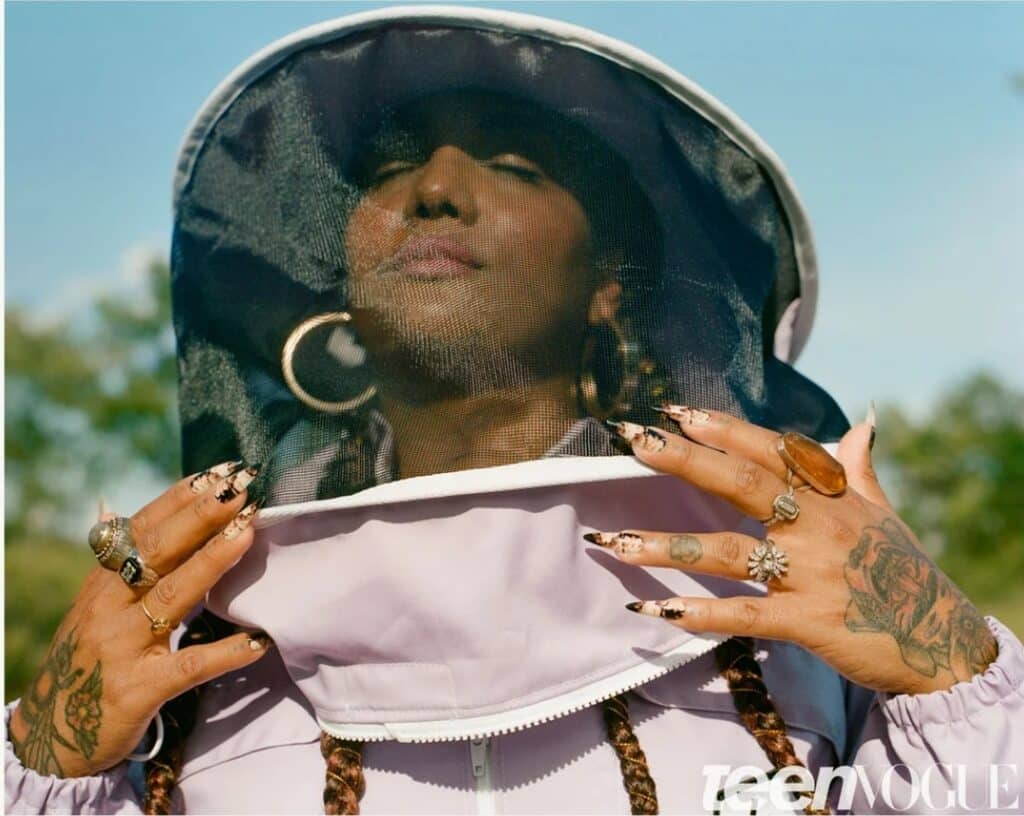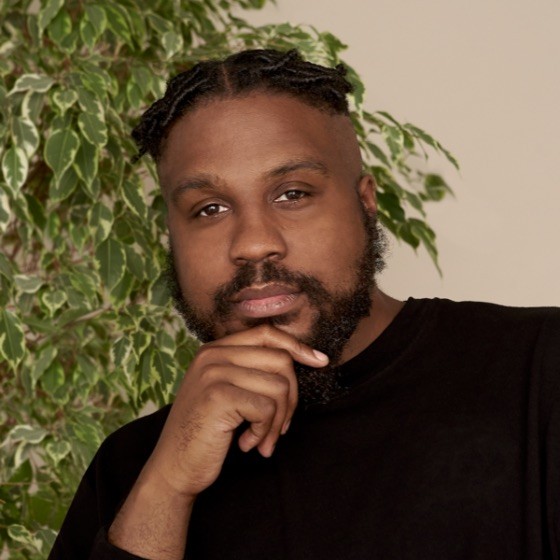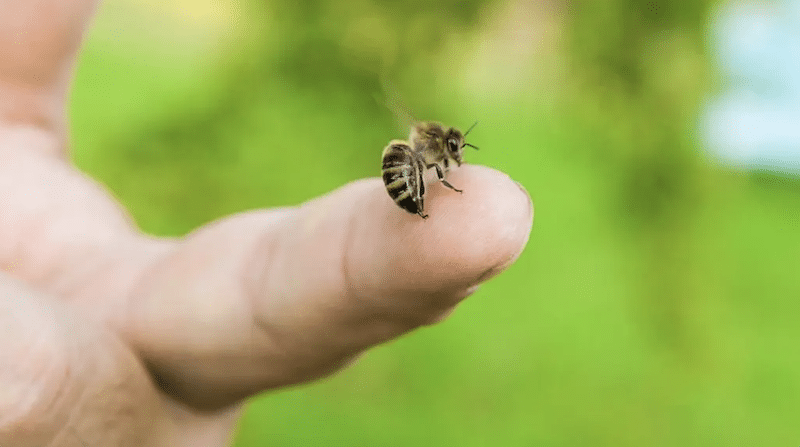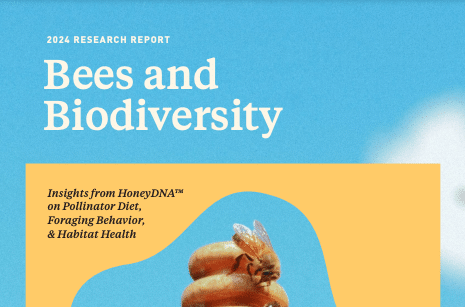Bee Culture: The Magazine of American Beekeeping states, “Women in beekeeping are supporting each other through mentoring, and encouraging women beekeepers to run for office in their local and state beekeeping groups.” In this article, Michele Colopy highlights the fact that women represented less than a third of leadership positions in national beekeeping groups.
However, we see more women each day empowering each other to help redefine the role of women in the beekeeping industry. For this Next-Gen Beekeeper feature, we’re excited to interview Nicole Rivera Hartery, founder of Bees On Main Street. Bees On Main Street is a full-service beekeeping company that specializes in swarm removal and education programs for classrooms and private lessons.
Nicole, an afrolatinx woman, is making strides to make beekeeping an accessible profession for all people. She’s paving the way to help save the bees and change the narrative of women and people of color in agriculture. Continue reading below to learn more about why it’s important to educate yourself about working with bees before buying bees, the connection between nature, feminism, and bees, and getting involved with the Half Mad Honey apiary.
What is your name?
Nicole Rivera Hartery
What are your pronouns?
She/Her
Where are you from?
Riverton, NJ
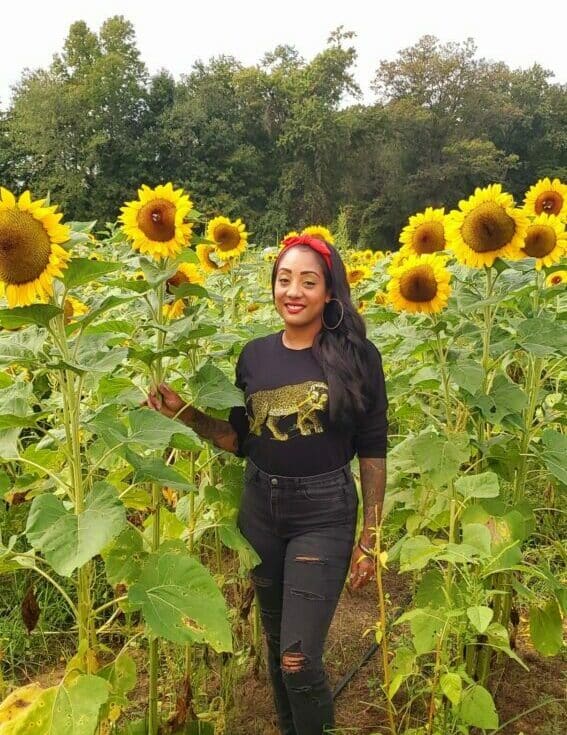
Let’s get into it! What first intrigued you about bees?
What first intrigued me about bees was about 6 years ago, I went to a Philadelphia museum and they had an observatory beehive, I was speaking to the employee about what she had witnessed going on inside the hive and I was completely blown away. That was the start of me being completely obsessed.
When you tell people you’re a beekeeper, what are their first reactions?
The initial reaction is always shock. People always tell me they expect something else, when they see me there’s always an assumption that I do hair or makeup based on my appearance. Then when I tell another person of color that I’m a beekeeper, there is shock as well, but always followed up with kind words of encouragement.
What was your first experience with bees?
I guess you could say my first experience with bees was that day at the museum with the observatory hive, I was able to observe and learn so much that day. My first hands-on experience was during the Rutgers University beekeeping course.
When you tell people you’re a beekeeper, what are their first reactions?
The initial reaction is always: shock. People always tell me they expect something else. When they see me, there’s always an assumption that I do hair or makeup based on my appearance. Then when I tell another person of color that I’m a beekeeper, there is a shock as well, but it is always followed up with kind words of encouragement.
What’s your favorite part about beekeeping?
My favorite part about beekeeping is just sitting back observing and taking photos. Watching them work and create their sisterhood is very calming, therapeutic, and encouraging. Being able to capture that in a photo for me is very rewarding.
What is your most memorable moment as a beekeeper?
I have so many memorable moments, it’s really hard to narrow it down to one, but honestly when I was asked to do the Teen Vogue shoot was definitely a highlight for me. I went to school for personal wardrobe styling, so shooting for Teen Vogue and discussing beekeeping for the fashion section was such a full-circle moment for me, a past and present passion definitely came together. Also being able to share that moment with my friends, the girls of Half Mad Honey made it really fun.
What do you think is important about bees and the work you do to care for them?
Well, the word has definitely spread on the importance of bees and how pollinators are dire to our ecosystem. With all different kinds of species of pollinators dying off at a rapid rate, the current work of the beekeeper has become of great value. However, we couldn’t do what we do if it wasn’t for the nature of the honeybee. This species of Bee allows for human intervention and allows us to assist in their survival and help fight off certain things that are harming and killing them. It’s a lot of hard work, time, and dedication that is put into beekeeping.
How has being a beekeeper impacted your worldview?
Beekeeping has definitely changed my worldview in a couple of different ways. It has definitely made me more of a feminist. Seeing first hand how the female bees run, work and defend the colony has opened up my eyes to how nature, most species the female is the stronger sex. Which is not much different from the human race. We’re led to believe the female is the weaker sex, but that is simply just a lie that is given to us and we prove to overcome. Also, the sisterhood of the Honeybee is absolutely beautiful and a great example of when women come together and build each other up we can accomplish greatness.
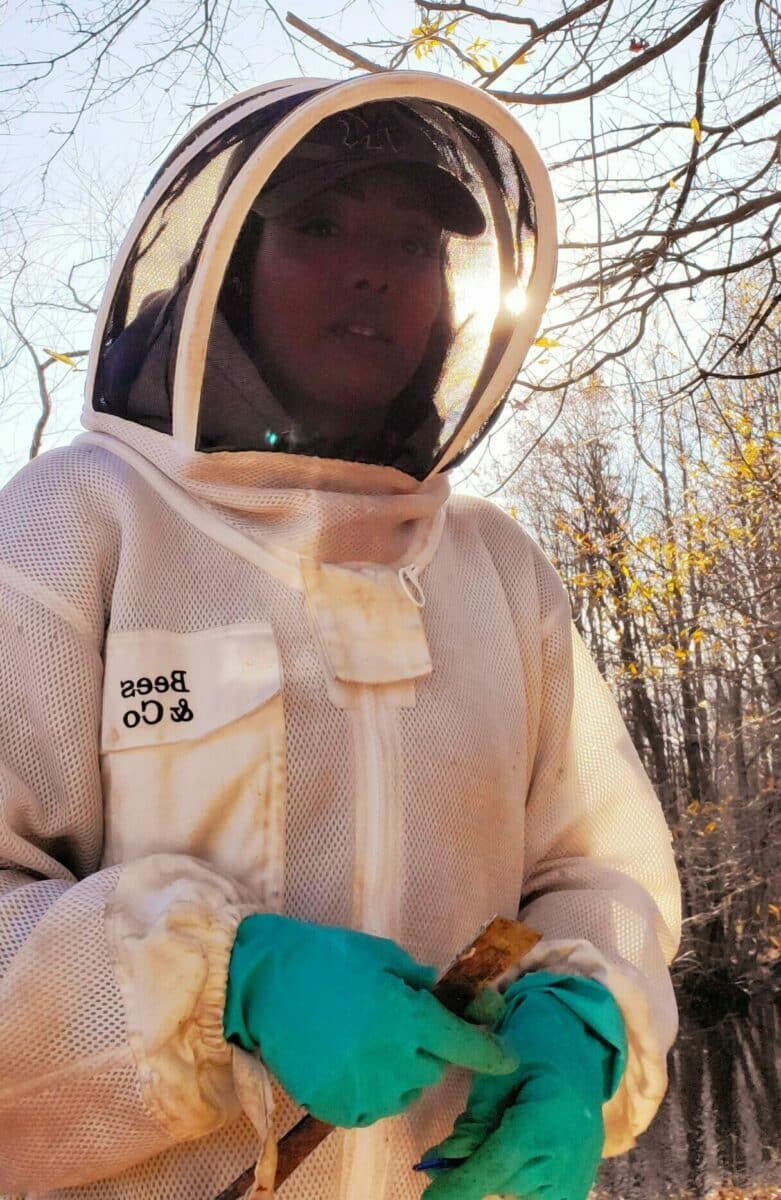
Honesty time. Are you afraid of bees?
Nope, not at all.
Where do you see the beekeeping industry in the next 10? 20 years?
I see it definitely more normalized as a trade and more people of color being normalized in the industry. I would like to see being offered in more trade schools and educational centers reaching children and teenagers at a young age so they know it is an option as a hobby or career.
Any lessons for our readers who might want to embark on a similar journey as you?
Definitely educate yourself. There are colleges, programs, and local beekeepers associations that offer classes and education. It will give you an insight into the work you’ll face ahead and can help you decide if this is really something you want to do. So many people get into it without proper knowledge, buy bees, and don’t know what to do. Educate yourself prior.
What are you up to when you’re not beekeeping?
When I’m not beekeeping my other job is Mother. I have two daughters and they take up the rest of my time. Especially now with the current situation of Covid19 and I have chosen to do remote learning with them. So most of our days are spent together.
What’s next for you?
I do have a couple of beekeeping projects that I am working on. One of them is collaborating with my fellow beekeeper buddies Half Mad Honey hive tours. It will be at Half Mads’s Apiary in Philadelphia. It will be starting up in the spring and a good educational experience for people who are interested in suiting up and learning about bees first hand and taking a look inside the hive. It’s going to be really fun.
Plug time. How can our readers support you and the work you’re doing?
My company is called Bees on Main St. and you can see exactly what I do with my business. My Instagram handle is @riveraxn.


